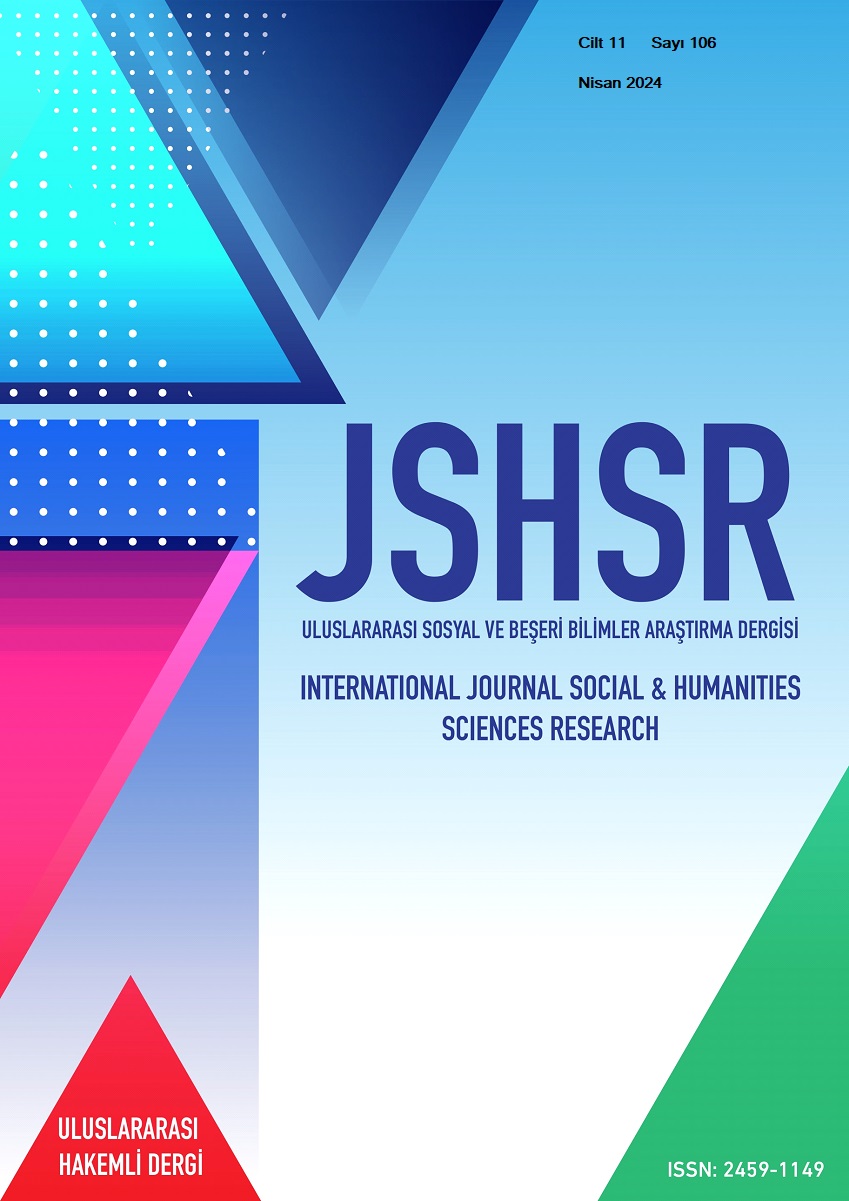Teachers' Perceptions on the Use of Artificial Intelligence in Education
DOI:
https://doi.org/10.5281/zenodo.11113077Keywords:
artificial intelligence, education technologies, teacherAbstract
Today, technological developments in the field of education aim to provide students with more effective and individualised learning experiences. In this context, artificial intelligence (AI) plays an important role, leading groundbreaking changes in education and opening new horizons for students. AI creates new possibilities in education and offers students more effective, personalised and innovative learning experiences. These technological advances are being used to accelerate digital transformation in education to improve student achievement, support teachers and expand global education access. AI is emerging as an important driver of the evolution in education and offers exciting potential to further strengthen its role in education in the future. This study, which aims to obtain teachers' views on artificial intelligence, was carried out using phenomenology design, one of the qualitative research methods. The study included 28 primary school teachers as participants. According to the findings obtained within the scope of the research, young teachers use artificial intelligence tools more frequently in their lessons. At the same time, these teachers perceive the role of artificial intelligence in the field of education in the future as impressive, positive and exciting. Teachers' use of artificial intelligence is also related to the frequency of use. Teachers who frequently use artificial intelligence in their lessons stated that they prefer artificial intelligence more in the fields of question preparation, content creation, activity preparation, data analysis, achievement tracking. Teachers' concerns about the use of artificial intelligence were also analysed within the scope of the study. The findings obtained show that the use of artificial intelligence in education creates concerns such as killing creativity, making students lazy, data violations, inequality arising from differences in access to technology.
Keywords: artificial intelligence, education technologies, teacher
References
Atkinson, Robert D., (June 6, 2016). “It's Going to Kill Us!” And Other Myths About the Future of Artificial Intelligence. Information Technology & Innovation Foundation, June 2016, Available at SSRN: https://ssrn.com/abstract=3066182.
Bajcsy, R., Aloimonos, Y., ve Tsotsos, J. K. (2017). Revisiting active perception. Autonomous Robots, 42(2), 177-196. https://doi.org/10.1007/s10514-017-9615-3
Baker, T., Smith, L., & Anissa, N. (2019). Educ-AI-tion rebooted? Exploring the future of artificial intelligence in schools and colleges. Nesta Foundation
Bozkurt, A., Karadeniz, A., Baneres, D., Guerrero-Roldán, A. E., & Rodríguez, M. E. (2021). Artificial intelligence and reflections from educational landscape: A review of AI studies in half a century. Sustainability (Switzerland), 13(2), 1–16. https://doi.org/10.3390/su13020800.
Chaves, A. B. S. (2021). The role of intelligent systems in the development of peer-to-peer systems for energetic distribution management. Repositório do Iscte.
Chetty, K., Qigui, L., Gcora, N., Josie, J., Wenwei, L., & Fang, C. (2018). Bridging the digital divide: Measuring digital literacy. Economics, 12(1). https://doi.org/10.5018/economicsejournal.ja.2018-23
Goralski, M. A., & Tan, T. K. (2020). Artificial intelligence and sustainable development. The International Journal of Management Education, 18(1), 100330.
Gupta, R., Srivastava, D., Sahu, M., Tiwari, S., Ambasta, R. K., & Kumar, P. (2021). Artificial intelligence to deep learning: machine intelligence approach for drug discovery. Molecular diversity, 25, 1315-1360.
Haenlein, M., & Kaplan, A. (2019). A Brief History of Artificial Intelligence: On the past, present, and future of Artificial Intelligence. California Management Review, 61(4), 5–14. https://doi.org/10.1177/0008125619864925.
Haug, C. J., & Drazen, J. M. (2023). Artificial intelligence and machine learning in clinical medicine, 2023. New England Journal of Medicine, 388(13), 1201-1208.
Holmes, W., Bialik, M., & Fadel, C. (2019). Artificial Intelligence in Education: Promises and Implications for Teaching and Learning. In Center for Curriculum Redesign 14(4), 251–259. https://doi.org/10.1046/j.1365-2729.1998.1440251.x
Hussin, A. A. (2018). Education 4.0 made simple: Ideas for teaching. International Journal of Education and Literacy Studies, 6(3), 92-98.
Jules, T., & Salajan, F. (2019). The Educational Intelligent Economy. Emerald Publishing Limited
Kaul, V., Enslin, S., & Gross, S. A. (2020). History of artificial intelligence in medicine. Gastrointestinal endoscopy, 92(4), 807-812.
Merriam, S. B. (2013). Nitel araştırma. Ankara: Nobel Yayıncılık.
Pan, Y. (2016). Heading toward Artificial Intelligence 2.0. Engineering, 2(4), 409–413. https://doi.org/ 10.1016/J.ENG.2016.04.018.
Pasquinelli, M. (2023). The eye of the master: A social history of artificial intelligence. Verso Books.
Patton, M.Q. (2014). Nitel araştırma ve değerlendirme yöntemleri. Ankara: Pegem Akademi.
Perrotta, C., & Selwyn, N. (2020). Deep learning goes to school: toward a relational understanding of AI in education. Learning, Media, and Technology, 45(3), 251–269.
Russell, S., & Norvig, P. (2021). Artificial Intelligence: A Modern Approach (4th ed.). Pearson.
Shastri, B. J., Tait, A. N., Ferreira de Lima, T., Pernice, W. H., Bhaskaran, H., Wright, C. D., & Prucnal, P. R. (2021). Photonics for artificial intelligence and neuromorphic computing. Nature Photonics, 15(2), 102-114.
Sinek, S. (2011). Start with why: How great leaders inspire everyone to take action. Penguin.
Steenson, M. W. (2022). Architectural intelligence: How designers and architects created the digital landscape. mit Press.
Taşçı, G., & Çelebi, M. (2020). Eğitimde yeni bir paradigma: “Yükseköğretimde yapay zekâ”. OPUS International Journal of Society Researches, 16(29), 2346-2370.
Yao, K., & Yang, H. (2020). Research on the Integration of Artificial Intelligence and Education. Education Reform and Development, 2(2), 994–997. https://doi.org/10.26689/erd.v2i2.2062.
Ye, M., Zhang, H., ve Li, L. (2019). Research on data mining application of orthopedic rehabilitation information for smart medical. IEEE Access, 7, 177137-177147.
Yıldırım, A., Şimşek H. (2016). Sosyal bilimlerde nitel araştırma yöntemleri. Ankara: Seçkin Yayıncılık.
Zhang, C., & Lu, Y. (2021). Study on artificial intelligence: The state of the art and future prospects. Journal of Industrial Information Integration, 23, 100224.
Downloads
Published
How to Cite
Issue
Section
License
Copyright (c) 2024 INTERNATIONAL JOURNAL OF SOCIAL HUMANITIES SCIENCES RESEARCH

This work is licensed under a Creative Commons Attribution 4.0 International License.


